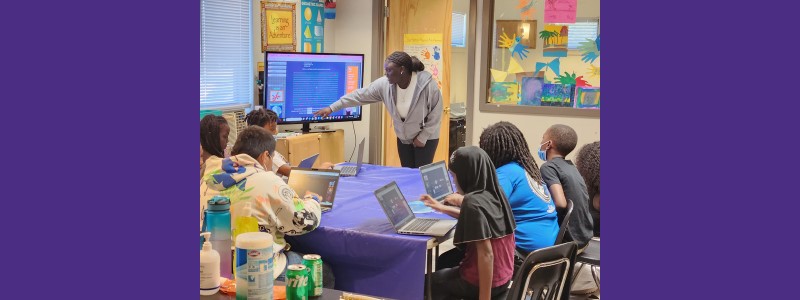While diversity has increased in Science, Technology, Engineering, and Math (STEM) fields since 2011, underrepresented minorities (URMs), including Black, Latino, American Indian, and Alaska Native populations, remain underrepresented in STEM occupations compared to their proportions in the overall U.S. population. According to the Pew Research Center, in 2021, STEM occupations comprised 24% of the U.S. workforce, with Hispanic workers constituting 8% and Black employees 9% of the STEM workforce while whites made up 65% of STEM workers. Currently, URM students account for 13% of undergraduates at the University of Washington, while representing 21% of the Washington state population and 34% of the national population.
Additionally, research by the National Science Foundation found that URM employees in STEM fields typically earn lower median incomes compared to their white or Asian counterparts.
A lack of diversity in the workforce can impact innovation, productivity and entrepreneurship. In STEM fields specifically, this could lead to a lack of research and advancement in devices, drugs and innovations that address the unique needs of marginalized groups.
Three UW students co-founded an organization to help address this disparity by teaching, mentoring and encouraging URM secondary school students to go into STEM fields in higher education. In 2019, Kyle Johnson and Vicente Arroyos, both PhD students in Computer Science and Engineering, and Liban Hussein, PhD student in Electrical and Computer Engineering, founded AVELA – A Vision for Engineering Literacy & Access, as a Registered Student Organization which then became a non-profit organization in 2022.
Undergraduate students in AVELA are mentored by graduate students, professors, and industry allies, before they go on to mentor secondary school students interested in STEM. Through this multi-tiered near-peer mentorship model, AVELA provides Black and Latino students at all levels with culturally responsive and representative STEM experiences, as well as exposure to university-level and industry-standard tools and concepts. This kind of outreach and instruction has been shown to benefit both the secondary school students and college student instructors.
During the 2022-2023 academic school year, AVELA taught over 1200 students, supported 100 student instructors, and taught in more than 50 classes. For the 2022-2023 school year, 63% of the organization’s instructors were female or non-binary and 51% are first-generation college students. Another impressive stat is that for the 2023-2024 school year, approximately 70% of the African American students that were directly admitted into the UW College of Engineering participated in AVELA classes in high school.
AVELA also emphasizes teaching culturally responsive lessons that include concepts of engineering for social good. An example of a project that the participating students worked on using a culturally responsive model was a heart rate monitor that was designed to be affordable. “Students learned that with purely analog components, they could actually measure someone’s heart rate for as cheap as $10,” co-founder Liban Hussein says.
AVELA partners with many companies, organizations and institutions to accomplish their goal of bridging the opportunity gaps currently present in the public education system. UW Bioengineering is one of AVELAs partners. Bioengineering Chair and Professor Princess Imoukhuede, Assistant Professor Ayokunle Olanrewaju and Associate Professor Kelly Stevens, have all supported AVELA students and projects.
Jainaba Jawara, a senior undergrad studying informatics, is the AVELA UW director of outreach. She helps oversee the partnership with the Institute for Stem Cell & Regenerative Medicine (ISCRM) and their UNITE program where they work with Professor Alec Smith to incorporate Bioengineering content in the classes AVELA teaches. In particular the AVELA team provides research-based outreach, laboratory and mentorship opportunities to undergraduate students in AVELA. This initiative has helped an average of 15 undergraduate students each year collaborate with graduate student mentors to develop outreach lessons focused on Biological and Chemical Engineering. During the 2022-2023 academic year, participants in the AVELA – UNITE partnership successfully engaged 87 middle and high school students across four distinct outreach venues.
“Our partnership provides us undergraduates with opportunities to delve into university research, gaining insights and expertise that we then had the privilege to share with our communities,” Jainaba said. “By keeping our communities informed about the ongoing research at the University, we bridge the gap between academia and society, fostering a sense of connectivity and mutual understanding.”
In partnership with Professor Olanrewaju, AVELA is supporting two National Science Foundation Research Experiences for Undergraduates (REU) students for the 2023-24 school year. The REU scholarship allows the scholars to increase their technical skills through hands-on lab experience that will help them develop and teach outreach lessons to local community partners.
If you are interested in being a part of AVELA you can visit their website to learn more and discover the many ways you can get involved. For faculty or staff looking to partner with AVELA, please contact avelauw@uw.edu.


